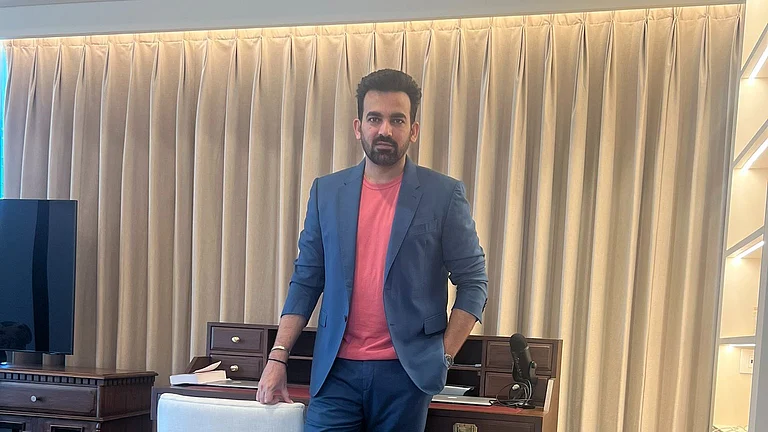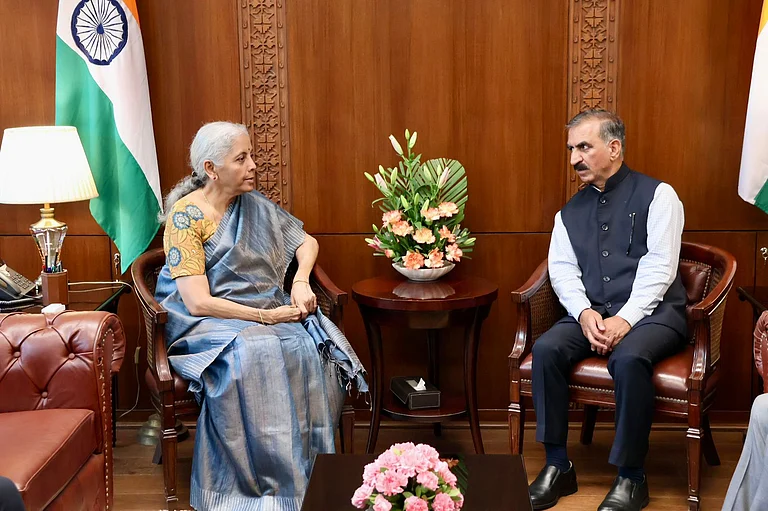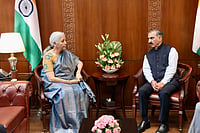Jammu and Kashmir Lt Governor Manoj Sinha on Monday said all stakeholders must work together for effective implementation of the 'Clean Air Programme' while every citizen should discharge their responsibility towards nature.
Addressing a gathering after inaugurating 'Aerosol Winter School-2023' at Central University here, he said the productive life of citizens and progress of the region depends on the health of the environment.
"All stakeholders, pollution control committee and urban local bodies must work together for effective implementation of clean air programmes and to shape the climate future of Jammu Kashmir," he said. Sinha said every citizen should discharge their responsibility towards nature and become 'green warriors and environment soldiers'.
"We have to strengthen the monitoring system at the grass root level by developing city action plans and micro action plans for local solutions," Sinha said. The Winter School is being organized by Central University of Jammu under the aegis of National Knowledge Network to support the National Clean Air Programme.
"Clean air is the priority of the administration and the National Clean Air Programme should become a mass movement for prevention, control and abatement of air pollution. It is also necessary that scientific research and its benefits reach the public and local institutions," he said.
Sinha urged the National Knowledge Network to cooperate in increasing the technical capabilities of institutions in Jammu and Kashmir and assured all the necessary assistance from his administration.
Highlighting the efforts being made under the guidance of Prime Minister Narendra Modi towards the National Clean Air Programme, he said the world is looking at India to combat the challenges of climate change.
"Experts should work at the grassroots level and there should be coordination between various experts, academic and administrative institutions on capacity building and public outreach," he said.
Sharing significant steps taken by his administration for maintaining a balance between development and ecology, he said various campaigns and initiatives at the panchayat level have infused a sense of responsibility in the society to work towards environment protection.
"City-specific strategy was formulated under NCAP guidelines for Jammu and Srinagar. Our focus should be on filling the gaps through policy formulation, capacity building, training program and extending its maximum benefits to Jammu Kashmir Pollution Control Committee and ULBs," he said.


























